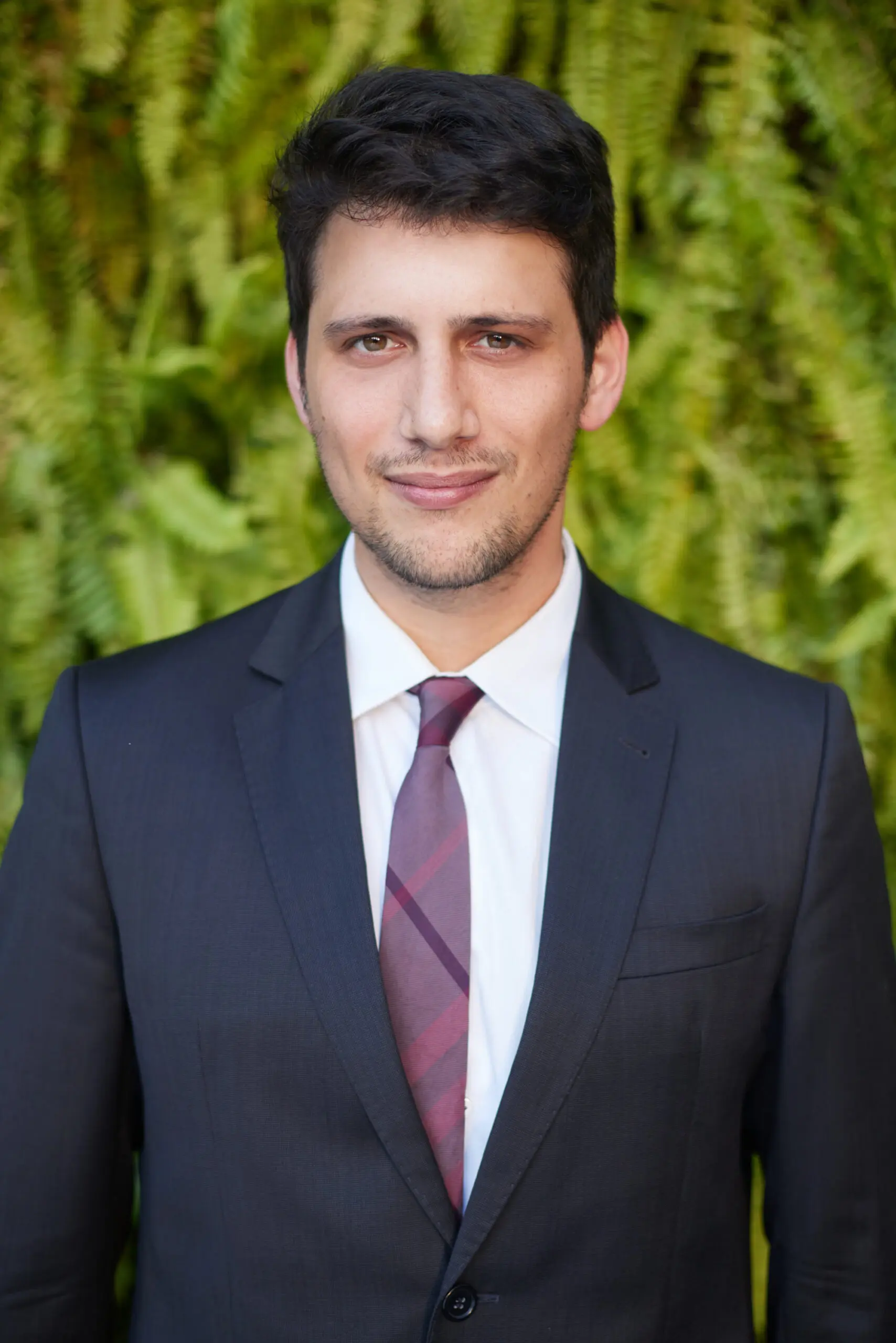Miuccia Prada and Raf Simons at Prada’s show during Milan Fashion Week Spring/Summer 2025, in September. Photographer: Daniele Venturelli/WireImage/Getty Images
By Rafael Albuquerque
The story of Miuccia Prada and Patrizio Bertelli is one of the great examples of innovation and strategic vision in the luxury world. Transforming a small leather goods store in Milan into a $19 billion empire, the couple has cemented their name in global fashion. Now, both in their seventies, preparing for the future of Prada SpA has become a priority to ensure the legacy remains true to the essence created by Miuccia and Patrizio. This process reflects the importance of succession planning done in life, supported by a family trusted advisor specializing in corporate governance and succession.
The Importance of Succession Planning in the Luxury Market
The succession of family-owned businesses in the luxury sector, particularly in Italy, represents both a challenge and an urgent need. Many iconic luxury brands in the country have roots in family businesses, and succession planning is often avoided due to the emotional and financial complexities involved. The absence of structured planning not only weakens family control but also exposes the company to acquisition risks by conglomerates like LVMH and Kering. In a globally competitive luxury market, where names like Fendi, Gucci, and Bottega Veneta have already been absorbed by these giants, preserving brand independence is challenging. The succession plan of Miuccia and Patrizio is, therefore, a crucial initiative to ensure that Prada continues setting trends, staying true to its roots and identity.
Property Transfer Strategy and Preparation of Lorenzo Bertelli
The succession of an empire like Prada is not an overnight process. As part of a gradual plan, Miuccia Prada transferred most of her shares to her eldest son, Lorenzo Bertelli, aiming to prepare the successor to take over the company. Lorenzo, who is already involved in marketing and sustainability areas, has been dedicated to gaining a deep understanding of the company’s operations. By taking on critical responsibilities, he is accumulating the necessary experience to face future challenges, from product innovation to meeting demands for sustainability and social responsibility, essential to the image of any luxury company today.
However, the success of a transition depends not only on the transfer of ownership. Structuring a plan that involves corporate governance and succession is essential to address the sector’s specificities, where constant innovation and solid identity management are differentiators. Collaboration with specialized trusted advisors allows the family to lead a succession process that protects not only the Prada brand but also family cohesion and prestige.
Support from Experts and a New Governance Structure
To further strengthen the company’s structure, Miuccia and Patrizio have added renowned talents to Prada’s team, including Raf Simons as co-creative director and experienced executives in key positions, such as Andrea Guerra and Paolo Zannoni. This governance model reinforces the security of a smooth transition. This approach, which includes the division of responsibilities and autonomy of brands under the holding company, allows each unit to operate efficiently and cohesively, keeping Prada in a prominent global position.
The inclusion of a trusted advisor specializing in corporate governance and succession provides the family with a strategic vision that goes beyond daily operations, focusing on brand strengthening for the long term. This support is indispensable, as it offers deep analysis of complex issues related to inheritance, asset valuation, and, most importantly, the preservation of family values in brand management.
Avoiding Conflicts and Preserving the Prada Legacy
While Miuccia and Patrizio lead the planning to avoid future disputes, other business families face significant challenges in passing the baton to the next generation. An example is the Agnelli family, founders of Fiat, who continue to face internal legal disputes involving succession. Such difficulties are common in family businesses where succession is taboo, resulting in unprepared and potentially uninterested heirs.
In the luxury industry, maintaining brand control is essential to preserving its essence. Prada is an example of how well-structured planning can ensure that the company’s identity and founders’ vision endure. From the beginning of her journey, Miuccia Prada, known as “La Signora” within the company, sought to break conventions and promote an innovative aesthetic that has become a symbol of style and avant-garde. This spirit of boldness and independence is what she and Patrizio wish to leave as a legacy.
Succession Planning: A Pillar for the Sustainability of the Family Legacy
In addition to protecting Prada’s control and independence, succession planning is also a sustainability tool for business continuity. In Lorenzo’s case, his involvement in marketing and social responsibility initiatives reflects the importance of aligning the brand with contemporary audience expectations, especially regarding environmental and social issues, increasingly valued by the modern consumer. This alignment with new market demands is crucial for the growth of any company in the luxury sector.
Therefore, the transfer of ownership goes beyond financial matters, incorporating a broad view of governance and sustainability. By ensuring that successors are prepared to act according to family values and market demands, Prada’s founders not only protect the financial heritage but also the symbolic heritage, which is the brand’s essence.
The Importance of a Trusted Advisor in Succession Planning
Prada’s story underscores the importance of succession planning as a tool for continuity and strengthening of the family legacy. Engaging a trusted advisor specialized in corporate governance and succession is a strategic measure that provides security for both preserving brand values and stabilizing family structure. For the Prada family, this approach ensures that the “Prada essence” survives and continues shaping the luxury world, reflecting Miuccia and Patrizio’s innovation and independent spirit for future generations.
In an industry where changes are constant, and competition is fierce, succession planning with expert support is the key to perpetuating the legacy and protecting the family’s heritage. Prada’s journey shows that with well-structured planning and a strategic outlook, it is possible not only to avoid internal conflicts but also to ensure that the brand remains relevant, independent, and true to its origins.
By Rafael Albuquerque





